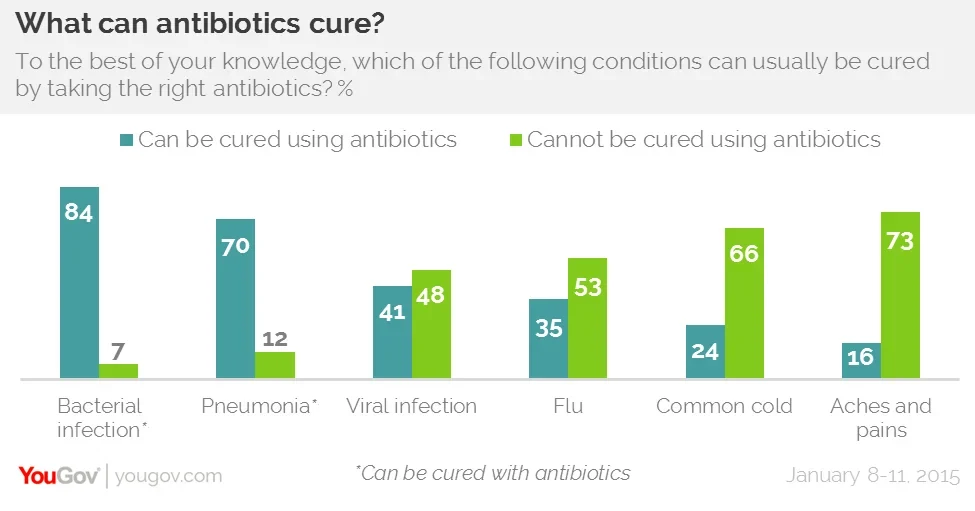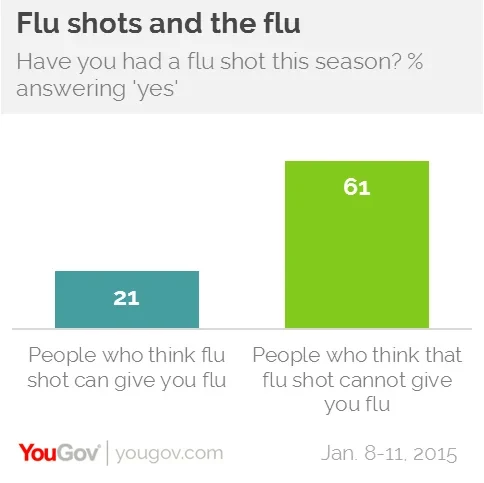A third of Americans think that antibiotics can cure the flu, and a third also think that flu shots can give you the flu
Last week researchers announced the discovery of a new antibiotic, the first such discovery in about three decades. The new antibiotic will be a powerful new medical tool, as overuse of antibiotics in prior years created resistant bacterial strains that are increasingly invulnerable to standard antibiotics. Doctors have known for a long time that overprescribing antibiotics is a problem, but many still hand out antibiotics for viral infections.
YouGov's latest research shows a great deal of confusion regarding what antibiotics can or cannot do. The vast majority of Americans know that antibiotics are useful when you're dealing with bacterial infections (84%) and pneumonia (70%), and that they're not much use against aches and pains (73%) or common colds (66%). Americans are, however, more confused as to whether or not antibiotics can help with the flu and other viral infections. 41% say that viral infections can be cured with antibiotics, while 35% think that antibiotics can cure the flu, neither of which is true.

Younger Americans are the most likely to be misinformed about whether or not antibiotics are useful in fighting the flu. 48% of under-30s say that the flu can be cured with antibiotics, while 40% know that it cannot. A majority of all Americans over the age of 30 know that antibiotics cannot cure the flu. Overall, however, 35% of the American public believe that antibiotics can cure the flu.

One of the persistent myths about flu shots is that, if you get one, you run the risk of actually getting the flu from the vaccination. 44% of Americans know that this isn't true, but 38% think that it is. People who think that you can catch the flu from a flu shot are much less likely to have got a flu shot this year. Only 21% of people who think you can catch the flu from a shot got one this flu season, while 61% of people who know you cannot catch it got a shot.
Full poll results can be found here.









